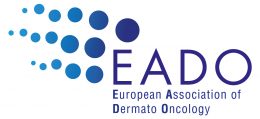Melanoma is one of the most common cancers diagnosed during pregnancy. Its incidence is increasing worldwide and the tendency to postpone childbearing until older ages may enhance the increasing trend in this special population. Pregnancy associated melanoma (PAM) is usually defined as melanoma diagnosed during pregnancy or up to one year post-partum. Data from different studies are controversial and mostly focused on the disease prognosis. Studies involving women diagnosed with melanoma in the early post-partum period are lacking and the real incidence of PAM is unknown and probably underestimated. Besides, pregnant women tend to postpone medical examinations except pregnancy controls and this could implicate a late melanoma diagnosis. A multi-center European study in order to determine PAM incidence and characteristics could amplify our knowledge about PAM and lead to population vigilance and increased awareness for skin examination among women of child-bearing age, a possible high risk population for melanoma.
Applicant: Dr. Maria Kostaki, General Hospital of Athens G. Gennimatas, Melanoma Reference Center, Athens, Greece
DNA methylation signatures derived from tumor tissue samples have been shown to have potential predictive value for therapy response to immune checkpoint inhibitors (ICIs) in patients with metastatic melanoma and various other solid tumor entities. To date nothing is known about the predictive value of DNA methylation profiling for therapy response to ICI in patients with locally advanced and metastatic non-melanoma skin cancers (NMSCs).
The aim of this study is to evaluate if DNA methylation profiling may serve as a predictive biomarker for ICI response in NMSCs, like cutaneous squamous cell carcinoma (cSCC), merkel cell carcinoma (MCC) and basal cell carcinoma (BCC), stage III-IV, according to the AJCC American Joint Committee on Cancer Edition 8th.
Applicant: Dr. Julia Maria Ressler, Department of Dermatology, Medical University of Vienna, Austria
Skin cancer is the most common form of cancer, and it is projected to become a significant public health problem in Europe. There are three main types of skin cancer: basal-cell skin cancer (BCC), squamous-cell skin cancer (SCC) and melanoma. BCC and SCC rarely result in death, whilst the survival rate of melanoma is highly dependent on the stage. This means that the early detection of skin cancer, especially melanoma is of a paramount importance.
To increase the rate of early detection of skin cancer we set out to employ comprehensive DNA methylation testing of cell-free DNA in blood specimens from 200 skin cancer patients, and 50 cancer-free individuals. We will use these data as a training set to build a machine learning model that would be able to discriminate skin cancer vs non-cancer samples and classify skin cancer samples into three skin cancer types.
By leveraging DNA methylation profiling and machine learning we are hoping to expand the toolbox for early cancer diagnostics.
Applicant: Dr. Andzelka Ilieva, Special Hospital Zan Mitrev, Skopje, Macedonia

